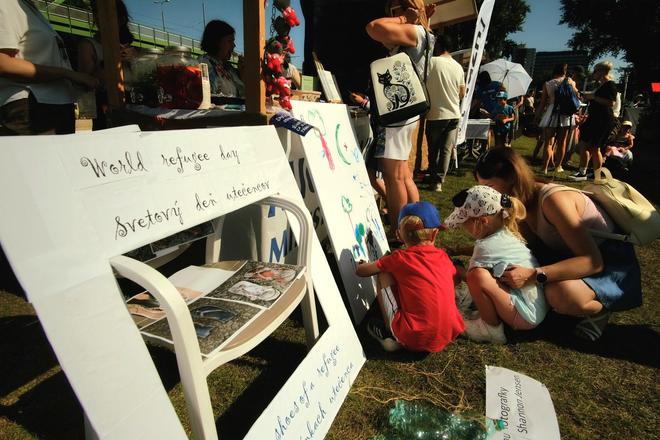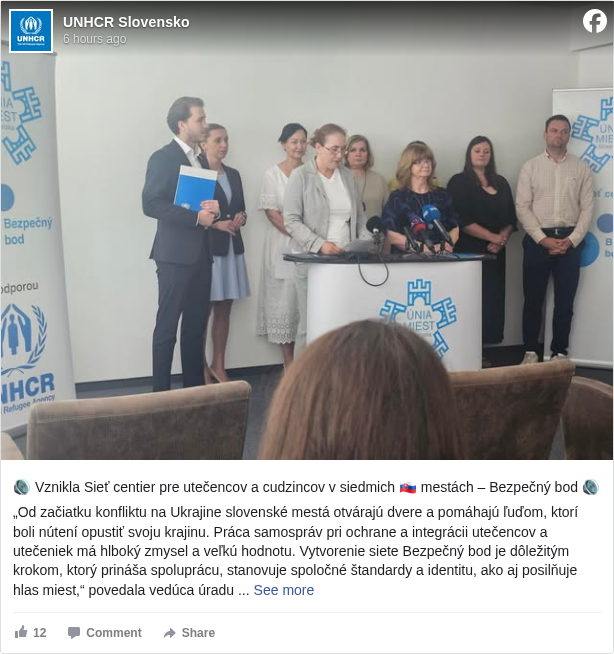Seven Slovak cities have joined forces to form a new network of support centres for refugees and foreign residents, in an effort to improve coordination and raise service standards amid growing concerns over long-term funding.
The initiative, known as Bezpečný bod (Safe Point), links municipal centres in Bratislava, Nitra, Trnava, Žilina, Košice, Prešov, and Michalovce. These centres already provide practical assistance to people who have fled conflict or who have migrated to Slovakia for work or family reasons.
The Union of Slovak Cities (Únia miest Slovenska, ÚMS), which will coordinate the network with support from the UN Refugee Agency (UNHCR), said the new structure is designed to foster cooperation, streamline service provision, and ensure that foreign residents – especially the most vulnerable – can access support more easily.
Cities unite to support migrants
Since the outbreak of war in Ukraine in 2022, more than 130,000 people have sought refuge in Slovakia. Municipalities have often played a leading role in welcoming them, alongside state agencies, civil society, and international organisations.
Each centre in the network will retain its local identity while adopting the Safe Point label, signalling shared standards and a commitment to safety and inclusion. Participating centres include LOOM in Bratislava, COMIN in Nitra, ConnecTT in Trnava, Žilinský maják in Žilina, and similar offices in Košice, Prešov, and Michalovce.
The centres offer a range of services – from legal and social counselling to language assistance and community integration programmes. They also serve labour migrants, who now contribute significantly to Slovakia’s economy and public finances.
Funding uncertainty
While the Safe Point network is seen as a step forward in improving integration, its long-term future remains uncertain. Most centres are currently funded through the EU-supported national Integration project, with resources secured only until the end of 2025 or mid-2026. Without renewed or alternative funding, officials warn that many centres may be forced to reduce or halt operations.
There is growing pressure on the government to find a sustainable financing model, including revisiting how personal income tax is distributed – so that municipalities housing foreign residents receive adequate resources to support them.
A recently adopted national strategy on asylum and migration recognises the crucial role of local authorities and civil society in integration and includes a commitment to seek long-term funding solutions. The Safe Point network’s organisers welcomed this as a positive step but stressed that tangible financial support will be essential if the system is to endure.


 Children draw during World Refugee Day in Bratislava, June 2025. (source: UNHCR/Samo Soth)
Children draw during World Refugee Day in Bratislava, June 2025. (source: UNHCR/Samo Soth)
